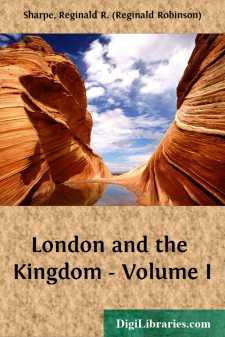Categories
- Antiques & Collectibles 13
- Architecture 36
- Art 48
- Bibles 22
- Biography & Autobiography 815
- Body, Mind & Spirit 144
- Business & Economics 28
- Children's Books 18
- Children's Fiction 14
- Computers 4
- Cooking 94
- Crafts & Hobbies 4
- Drama 346
- Education 58
- Family & Relationships 59
- Fiction 11833
- Games 19
- Gardening 17
- Health & Fitness 34
- History 1378
- House & Home 1
- Humor 147
- Juvenile Fiction 1873
- Juvenile Nonfiction 202
- Language Arts & Disciplines 89
- Law 16
- Literary Collections 686
- Literary Criticism 179
- Mathematics 13
- Medical 41
- Music 40
- Nature 179
- Non-Classifiable 1768
- Performing Arts 7
- Periodicals 1453
- Philosophy 65
- Photography 2
- Poetry 896
- Political Science 203
- Psychology 44
- Reference 154
- Religion 515
- Science 126
- Self-Help 85
- Social Science 82
- Sports & Recreation 34
- Study Aids 3
- Technology & Engineering 59
- Transportation 23
- Travel 463
- True Crime 29
Our website is made possible by displaying online advertisements to our visitors.
Please consider supporting us by disabling your ad blocker.
London and the Kingdom - Volume I
Description:
Excerpt
PREFACE.
Of the numerous works that have been written on London, by which I mean more especially the City of London, few have been devoted to an adequate, if indeed any, consideration of its political importance in the history of the Kingdom. The history of the City is so many-sided that writers have to be content with the study of some particular phase or some special epoch. Thus we have those who have concentrated their efforts to evolving out of the remote past the municipal organization of the City. Their task has been to unfold the origin and institution of the Mayoralty and Shrievalty of London, the division of the City into wards with Aldermen at their head, the development of the various trade and craft guilds, and the respective powers and duties of the Courts of Aldermen and Common Council, and of the Livery of London assembled in their Common Hall. Others have devoted themselves to the study of the ecclesiastical and monastic side of the City’s history—its Cathedral, its religious houses, and hundred and more parish churches, which occupied so large an extent of the City’s area. The ecclesiastical importance of the City, however, is too often ignored. "We are prone," writes Bishop Stubbs, "in examining into the municipal and mercantile history of London, to forget that it was a very great ecclesiastical centre." Others, again, have confined themselves to depicting the every-day life of the City burgess, his social condition, his commercial pursuits, his amusements; whilst others have been content to perpetuate the memory of streets and houses long since lost to the eye, and thus to keep alive an interest in scenes and places which otherwise would be forgotten.
The political aspect of the City’s history has rarely been touched by writers, and yet its geographical position combined with the innate courage and enterprise of its citizens served to give it no small political power and no insignificant place in the history of the Kingdom. This being the case, the Corporation resolved to fill the void, and in view of the year 1889 being the 700th Anniversary of the Mayoralty of London—according to popular tradition—instructed the Library Committee to prepare a work showing "the pre-eminent position occupied by the City of London and the important function it exercised in the shaping and making of England."
It is in accordance with these instructions that this and succeeding volumes have been compiled. As the title of the work has been taken from a chapter in Mr. Loftie’s book on London ("Historic Towns" series, chap. ix), so its main features are delineated in that chapter. "It would be interesting"—writes Mr. Loftie—"to go over all the recorded instances in which the City of London interfered directly in the affairs of the Kingdom. Such a survey would be the history of England as seen from the windows of the Guildhall." No words could better describe the character of the work now submitted to the public. It has been compiled mainly from the City’s own archives....



